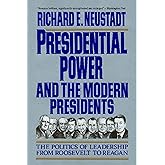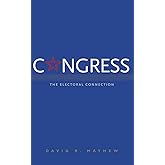Buy new:
$9.95$9.95
Ships from: Amazon.com Sold by: Amazon.com
Save with Used - Good
$9.45$9.45
Ships from: Amazon Sold by: GREENWORLD GOODS

Download the free Kindle app and start reading Kindle books instantly on your smartphone, tablet, or computer - no Kindle device required.
Read instantly on your browser with Kindle for Web.
Using your mobile phone camera - scan the code below and download the Kindle app.

Follow the author
OK
The Nature of the Judicial Process
Purchase options and add-ons
Cardozo handed down opinions that stressed the necessity for the law to adapt to the realities and needs of contemporary life. Famous for his convincing and lucid prose, he offers insights that remain relevant to a modern view of American jurisprudence. In simple, understandable language, he discusses the ways that rulings are guided and shaped by information, precedent and custom, and standards of justice and morals.
Four of Cardozo's lectures appear here, bookended by an introduction and conclusion. They explore a variety of approaches to the judicial process: the method of philosophy; the methods of history, tradition, and sociology; the method of sociology and the judge as a legislator; and adherence to precedent and the subconscious element in the judicial process. Ideal for law students as well as anyone interested in legal theory, this volume offers a rare look inside the mind of a great jurist.
- ISBN-100486443868
- ISBN-13978-0486443867
- PublisherDover Publications
- Publication dateFebruary 29, 2012
- LanguageEnglish
- Dimensions6.5 x 0.4 x 8.5 inches
- Print length192 pages
Frequently bought together

Customers who viewed this item also viewed
From the Publisher


Dover Books on History
Works on Tudor England, Ancient Rome, the medieval tournament, the writings of Gandhi, Lenin, Lincoln, and Machiavelli — books for the scholar and general reader, including many reprints of hard-to-find classics.
The Nature of the Judicial Process
In this legal classic, a former Associate Supreme Court Justice explains the conscious and unconscious processes by which a judge decides a case and the ways rulings are guided and shaped.
Product details
- Publisher : Dover Publications (February 29, 2012)
- Language : English
- Paperback : 192 pages
- ISBN-10 : 0486443868
- ISBN-13 : 978-0486443867
- Item Weight : 10.4 ounces
- Dimensions : 6.5 x 0.4 x 8.5 inches
- Best Sellers Rank: #501,964 in Books (See Top 100 in Books)
- #107 in Civil Law Procedure (Books)
- #395 in Law Practice (Books)
- #737 in Law (Books)
- Customer Reviews:
About the author

Discover more of the author’s books, see similar authors, read book recommendations and more.
Customer reviews
Customer Reviews, including Product Star Ratings help customers to learn more about the product and decide whether it is the right product for them.
To calculate the overall star rating and percentage breakdown by star, we don’t use a simple average. Instead, our system considers things like how recent a review is and if the reviewer bought the item on Amazon. It also analyzed reviews to verify trustworthiness.
Learn more how customers reviews work on AmazonTop reviews from the United States
There was a problem filtering reviews. Please reload the page.
- Reviewed in the United States on March 8, 2018“The work of deciding cases goes on every day in hundreds of courts throughout the land. Any judge, one might suppose, would find it easy to describe the process which he had followed a thousand times and more. Nothing could be farther from the truth.’’
‘Easy description of his thinking impossible’! Why so hard?
“What is it that I do when I decide a case? To what sources of information do I appeal for guidance? In what proportions do I permit them to contribute to the result? In what proportions ought they to contribute? If a precedent is applicable, when do I refuse to follow it? If no precedent is applicable, how do I reach the rule that will make a precedent for the future? If I am seeking logical consistency, the symmetry of the legal structure, how far shall I seek it? At what point shall the quest be halted by some discrepant custom, by some consideration of the social welfare, by my own or the common standards of justice and morals?’’
Outstanding questions! Self-analysis is painful!
“Some principle, however unavowed and inarticulate and subconscious, has regulated the infusion. It may not have been the same principle for all judges at any time, nor the same principle for any judge at all times. But a choice there has been, not a submission to the decree of Fate; and the considerations and motives determining the choice, even if often obscure, do not utterly resist analysis. In such attempt at analysis as I shall make, there will be need to distinguish between the conscious and the subconscious.’’
‘Fate is not to blame. We are’ We choose words and make decisions.
“Constitutions are more likely to enunciate general principles, which must be worked out and applied thereafter to particular conditions. What concerns us now, however, is not the size of the gaps. It is rather the principle that shall determine how they are to be filled, whether their size be great or small. The method of sociology in filling the gaps, puts its emphasis on the social welfare.’’
Cardozo understands ‘sociology’ now has taken the overriding place in judicial theory.
““Perhaps the most significant advance in the modern science of law is the change from the analytical to the functional attitude.”
“The emphasis has changed from the content of the precept and the existence of the remedy to the effect of the precept in action and the availability and efficiency of the remedy to attain the ends for which the precept was devised.” Foreign jurists have the same thought:
“The whole of the judicial function,” says Gmelin, “has... been shifted. The will of the State . . .”
(the will of the state)
“ . . .expressed in decision and judgment is to bring about a just determination by means of the subjective sense of justice inherent in the judge, guided by an effective weighing of the interests of the parties in the light of the opinions generally prevailing among the community regarding transactions like those in question. The determination should under all circumstances be in harmony with the requirements of good faith in business intercourse and the needs of practical life, unless a positive statute prevents it; and in weighing conflicting interests, the interest that is better founded in reason and more worthy of protection should be helped to achieve victory.”
“On the one hand,” says Gény, “we are to interrogate reason and conscience, to discover in our inmost nature . . .”
(in our inmost nature; well . . . think of the inmost nature of Hitler, Stalin, Robespierre)
“ . . .the very basis of justice; on the other, we are to address ourselves to social phenomena, to ascertain the laws of their harmony and the principles of order which they exact.” And again: “Justice and general utility, such will be the two objectives that will direct our course.”
“Liberty is not defined. Its limits are not mapped and charted. How shall they be known? Does liberty mean the same thing for successive generations? May restraints that were arbitrary yesterday be useful and rational and therefore lawful today?”
Well. . .liberty is something so. . .so. . .fluid?
“I have no doubt that the answer to these questions must be yes. There were times in our judicial history when the answer might have been no. Liberty was conceived of at first as something static and absolute. The Declaration of Independence had enshrined it. The blood of Revolution had sanctified it.’’
What changed? Yes, freedom is precious - into - no, Liberty is taken from individuals and given to the group.
“The political philosophy of Rousseau and of Locke and later of Herbert Spencer and of the Manchester school of economists had dignified and rationalized it.’’
“Laissez faire was not only a counsel of caution which statesmen would do well to heed. It was a categorical imperative which statesmen, as well as judges, must obey. The “nineteenth century theory” was “one of eternal legal conceptions involved in the very idea of justice and containing potentially an exact rule for every case to be reached by an absolute process of logical deduction.”
Liberty found by legal ideas and logically followed. This is bad?
“The century had not closed, however, before a new political philosophy became reflected in the work of statesmen and ultimately in the decrees of courts. The transition is interestingly described by Dicey in his “Law and Opinion in England.”
Interesting that Cardozo does not present the names that replaced Locke, etc.; perhaps Hegel, Fichte, Marx, Bukharin? He does credit James’ pragmatism. But pragmatism doesn’t seem to really supply the power for this dramatic reversal.
““The movement from individualistic liberalism to unsystematic collectivism” had brought changes in the social order which carried with them the need of a new formulation of fundamental rights and duties. In our country, the need did not assert itself so soon. Courts still spoke in the phrases of a philosophy that had served its day.’’
‘Individual Liberty to confused collectivism”.
“Gradually, however, though not without frequent protest and intermittent movements backward, a new conception of the significance of constitutional limitations in the domain of individual liberty, emerged to recognition and to dominance.’’
See most of the work of Isaiah Berlin, especially ‘Four enemies of Liberty’. Also, J. L. Talmon and his scholarly research.
“We see the same process at work in other fields. We no longer interpret contracts with meticulous adherence to the letter when in conflict with the spirit. We read covenants into them by implication when we find them “instinct with an obligation” imperfectly expressed. “The law has outgrown its primitive stage of formalism when the precise word was the sovereign talisman, and every slip was fatal.”
‘Outgrown adherence to words’. What replaced this?
“There can be no wisdom in the choice of a path unless we know where it will lead. The teleological conception of his function must be ever in the judge’s mind. This means, of course, that the juristic philosophy of the common law is at bottom the philosophy of pragmatism. Its truth is relative, not absolute. The rule that functions well produces a title deed to recognition.’’
The result is the key, not the present agreement.
“Only in determining how it functions we must not view it too narrowly. We must not sacrifice the general to the particular. We must not throw to the winds the advantages of consistency and uniformity to do justice in the instance.’’
““The chief lawmakers in our country may be, and often are, the judges, because they are the final seat of authority. Every time they interpret contract, property, vested rights, due process of law, liberty, they necessarily enact into law parts of a system of social philosophy; and as such interpretation is fundamental, they give direction to all law-making.
“The decisions of the courts on economic and social questions depend upon their economic and social philosophy; and for the peaceful progress of our people during the twentieth century we shall owe most to those judges who hold to a twentieth century economic and social philosophy and not to a long outgrown philosophy, which was itself the product of primitive economic conditions.”
Cardozo clearly grasps the legal disconnect to the ethical/moral/philosophical past. And believes it is good, and cannot be stopped.
Well. . . Cardozo gives an excellent presentation of the the change from ‘adherence to words’ to ‘teleological functionality’. From commitment to truth to guidance by sociology.
This speech at Yale in 1921. The old, outdated beliefs are the Judeo/Christian morality. These are the ones that supplied to scientific and industrial revolutions.
What has Rousseau’s, Comte’s ‘sociology’ given to modernity? Sociology was invented by Comte. ‘Scientific Reason’ supported the decisions of Hegel, Marx, Mussolini, Lenin, etc..
One key assumption with Cardozo’s argument is that experts - judges, legislators, scientists, etc., can anticipate the consequences of their legal coercion. Removing freedom form each and giving freedom to authority to force obedience is justified by its (planned, assumed) results.
What if the results don’t appear?
What happens when consequences are terrible?
- Reviewed in the United States on September 27, 2023It is always very helpful to analyze the point of view of respected giants. It is easier to fall victim to a manufactured fake one from a slick salesman.
- Reviewed in the United States on April 9, 2018Not a fancy edition, but does the job.
- Reviewed in the United States on March 14, 2018I always like getting used copies for the notes. The book is in great quality too.
- Reviewed in the United States on February 5, 2016This book is a classic. While I like another edition better (the cover art) this book came complete, and in good condition.
- Reviewed in the United States on February 21, 2018What can one say? It's Benjamin N. Cardozo!
- Reviewed in the United States on May 6, 2006Cardozo cannot string a sentence together that is simple and clear. He may have been a judicial giant, but how would you know from his writing? Richard Feynman, the physicist, said it best when he observed that anyone who cannot communicate what they know, clearly and simply, does not know their subject very well. The whole thing is a chore to decipher into common language. It makes you wonder if Cardozo wasnt one more Hoover screw-up.
- Reviewed in the United States on December 30, 2014An excellent discourse by an outstanding jurist.
Top reviews from other countries
 MALVIKAReviewed in India on April 3, 2024
MALVIKAReviewed in India on April 3, 20245.0 out of 5 stars Good
Good
 Amazon CustomerReviewed in India on February 13, 2022
Amazon CustomerReviewed in India on February 13, 20225.0 out of 5 stars An amazing compilation of lectures of Cardozo, J.
Truly an art of understanding Judicial Philosophy.
 AnnieReviewed in India on May 25, 2017
AnnieReviewed in India on May 25, 20175.0 out of 5 stars Five Stars
Good
 Hienrich Himmler TitoReviewed in India on October 20, 2018
Hienrich Himmler TitoReviewed in India on October 20, 20182.0 out of 5 stars Good book
Must read book for legal students













